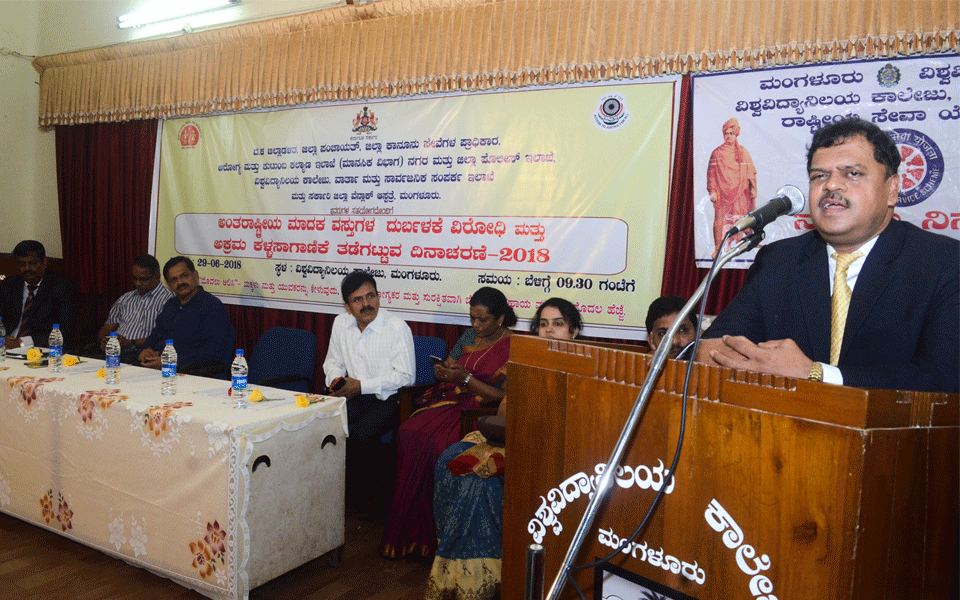Mangaluru, June 29: Second additional principal district and sessions court judge Mohammad Mujahidullah said that as more than 1.90 lakh people have been losing their life annually due drug addiction, the international day against drug abuse and trafficking should not limited to just one day.
Inaugurating a programme organised to mark the International day against drug abuse and trafficking, by the district administration, zilla Panchayat, district Legal Aid Authority, district Bar Association, health and family welfare department (mental health), police department, university college, district information department, and the Wenlock hospital at the university college here on Friday, the judge said that awareness should be created among people against using drugs and their impact.
As soon as the parents noticed that their children were taking wrong path, they should keep a vigil on them and advice them. They should also ensure that their children were not addicted to social media, he said.
College principal Dr Uday Kumar presided over the programme in which psychiatrist Dr Aruna Yadiyal Was the resource person. Senior judge Mallanna Gowda, hospital superintendent Dr Rajeshwari Devi, senior assistant director of information department Khader Shaw, Mangaluru sub division assistant commissioner Renuka Prasad, DHO Dr Ramakrishna Rao, mental health officer Dr Jayakumar and others were present.




Let the Truth be known. If you read VB and like VB, please be a VB Supporter and Help us deliver the Truth to one and all.
Dubai: Smoke was seen rising from an area near the United States Consulate in Dubai, according to witness accounts cited by Reuters.
There was no immediate official confirmation on the extent of damage or whether there were any casualties in the incident.
Earlier, the US embassy in Riyadh, Saudi Arabia’s capital, was also attacked. Authorities reported damage to the premises, but no casualties were recorded.
The developments come amid heightened tensions in the region, with Iran continuing to target US interests in the Middle East following deadly attacks launched on Saturday by Israel and the United States.
Near US embassy in Dubai pic.twitter.com/z5VTZNVxNO
— Sahil Shah (@thesahilsshah) March 3, 2026





